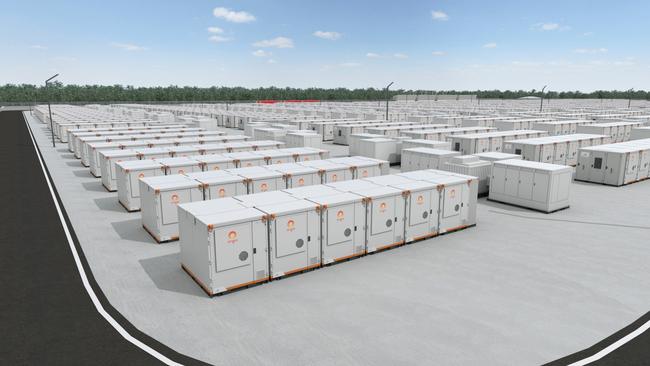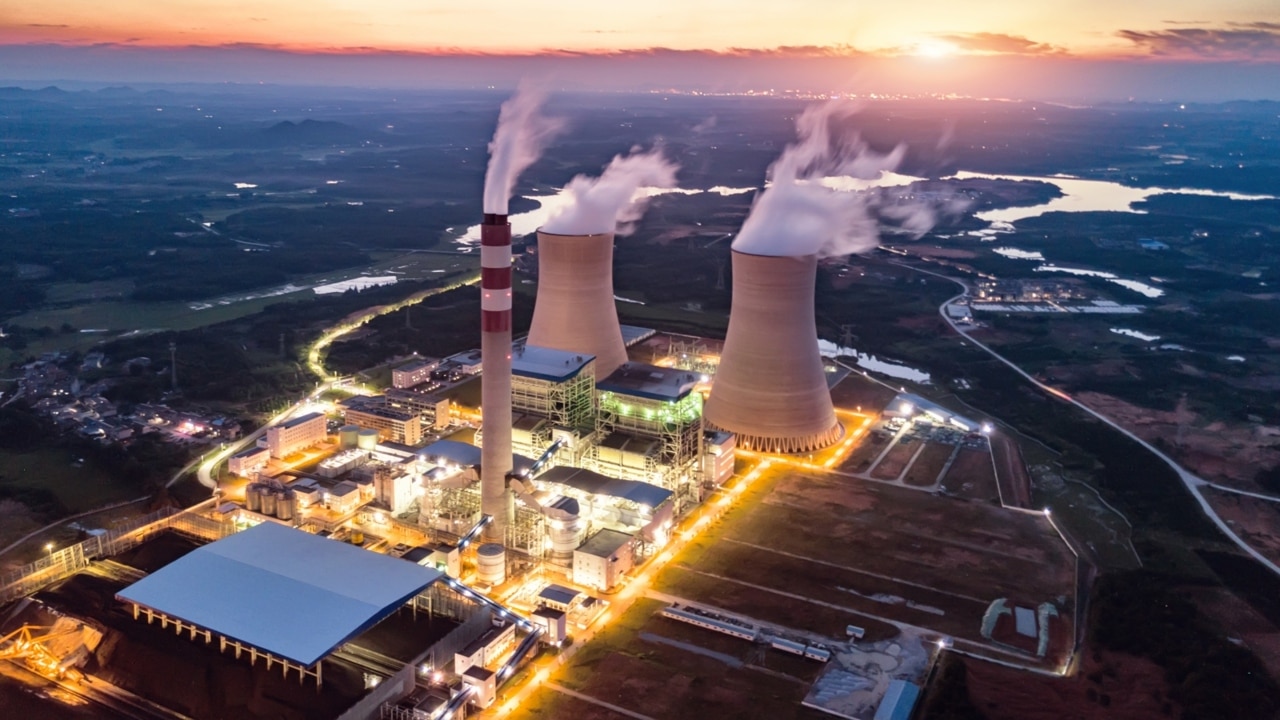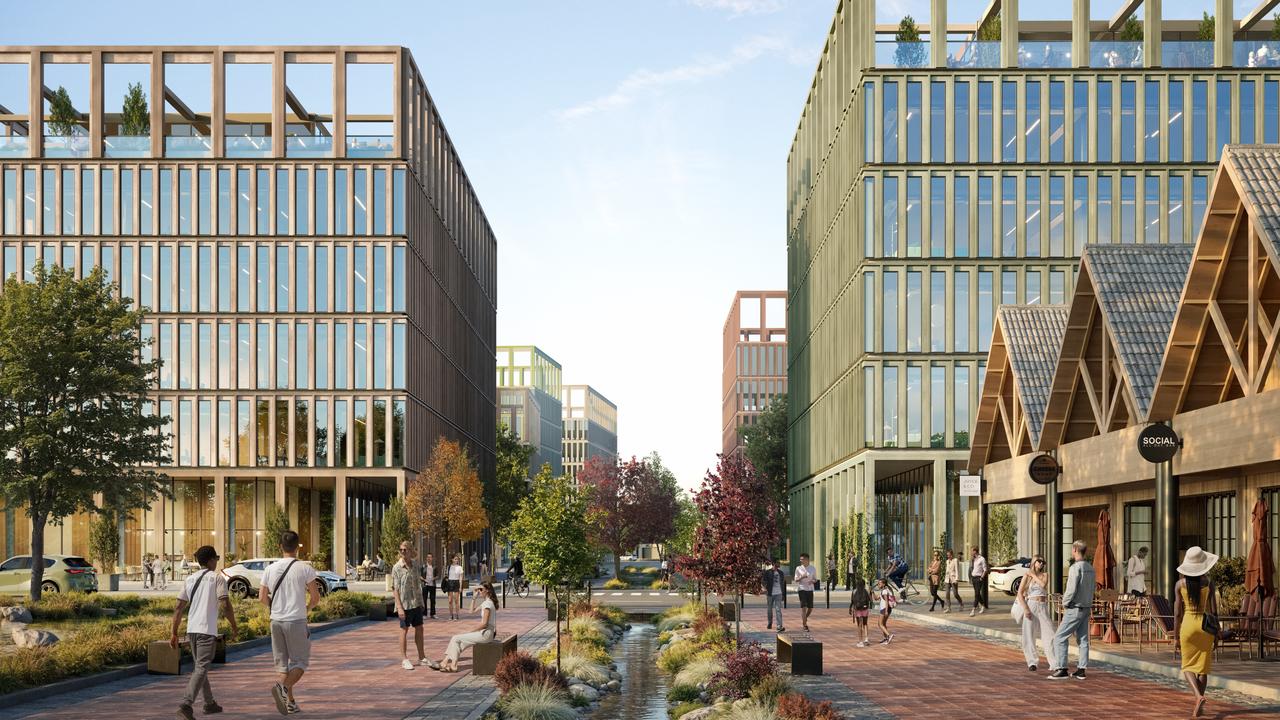Origin ups dividend payments as it vows to deliver returns and transition
For the first time Origin Energy has outlined where its solar, battery and wind power projects are as it doubled down on energy transition promises. Here’s a map of the biggest ones.

Business
Don't miss out on the headlines from Business. Followed categories will be added to My News.
For the first time Origin Energy has outlined its renewable energy pipeline and a timetable on several of its most advanced developments.
Amid a dividend policy update, Origin also reaffirmed its commitment to building 4-5GW of renewable energy to service its more than 4 million customers.
Origin in February said it would reassess its renewable energy plans, which calls on the company to develop at least 4GW of zero emission generation capacity after the collapse of the near $20bn acquisition by Brookfield and EIG Partners.
The commitment will underwhelm those who had hoped Origin would develop a larger amount of renewable energy. Brookfield has promised to develop 14GW, a commitment that would have gone a large way to ensuring Australia meets its zero emissions targets. The Brookfield deal, however, failed to secure the necessary shareholder support.
Origin, however, did provide more clarity on its pipeline, pleasing some investors which had urged the retail giant to provide more detail, particularly around how they would fund the transition.
Origin Energy said it would return a minimum of 50 per cent of its free cash flow to investors, an increase on its previous policy, as it vowed to deliver a rapid transition to renewable energy while simultaneously rewarding shareholders.
The revised dividend policy, which previously saw Origin promise to return between 30-50 per cent of free cash flow to investors, is the company’s attempt to allay concerns that investors will be crimped by its swift to renewable energy sources.
Some investors had been angling for a minimum of 65 per cent of free cash flow, a figure that could have undermined Origin’s capacity to build new renewable energy developments.
Frank Calabria, Origin’s chief executive, said the tweak demonstrates the strength of the business and it will allow the company to invest in zero emission sources of power.
“It clearly demonstrates the strength of the position we find ourselves in. We also believe that we can do that and still have the flexibility to take the opportunities, to transition the business and to grow the business,” Mr Calabria told The Australian.

Project updates
Origin said its newly acquired Yanco Delta wind farm development was a priority renewable energy project beyond its already announced spate of battery projects.
The energy giant acquired the proposed 1.5GW wind farm and 800 MWh battery earlier this year. The project recently became the first wind farm in NSW to secure planning approval in nearly three years, and is strategically located next to key transmission infrastructure.
The wind farm development is located on a 33,000 hectare site 10KM northwest of Jerilderie in the Riverina district.
Origin said it expects the between $300m and $500m on the project to progress through development. Once construction begins, Mr Calabria said Origin will seek funding partners, while acquiring the offtake electricity generated.
Renewable generation assets like wind farms are likely to be capital intensive, with potentially smaller but more stable returns.
Renewable energy generation projects produce throughout the day and do not allow owners to capitalise on wholesale volatility.
Although likely lower, such assets generate consistent earnings – potentially appealing to the likes of superannuation investors.
Origin for now is concentrating on developing several large-scale batteries – as it capitalises on prevailing market conditions.
Australia’s wholesale electricity price – the cost of generating electricity – can swing wildly throughout the day, primarily due to the country’s high uptake of rooftop solar.
During sunny days, the wholesale price is often zero and can sometimes be negative. A battery could be charged during this period and an operator receives a fee for doing so.
The battery would then be discharged when the sun sets and the cost of wholesale electricity rises.
Origin will, however, require another 1GW of renewable energy beyond Yanco, existing offtake deals and its battery fleet to meet its target, but Mr Calabria said which projects are progressed will depend on the final design of the Capacity Investment Scheme specifically.
The Capacity Investment Scheme, which sees taxpayers underwrite the development of projects, is the centrepiece federal Labor policy that it hopes will drastically increase commitments to bolster renewable energy generation across the east coast.
Labor is under growing pressure over its ambitious target of having zero emission sources generate 82 per cent of the country’s electricity by 2030 — a target it is currently not on course to meet.
Mr Calabria said progress towards the target is developing, but acknowledged it was “tight”.
Origin shares closed down 0.8 per cent at $10.00 on Wednesday, against a 0.5 per cent fall in the benchmark index.
More Coverage
Originally published as Origin ups dividend payments as it vows to deliver returns and transition





